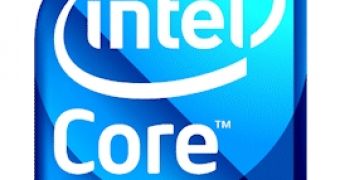Intel has already started shipping its new Core i7 processors based on the Nehalem micro-architecture, announced Intel’s chief executive officer Paul Otellini during a conference call with financial analysts. The new chips are expected to bring nice performance boosts over current products on the market. The platform architecture used for the CPUs is quite different from what the chipmaker had until now, and is said to resemble the one used by Intel's direct competitor, Advanced Micro Devices.
“I am pleased to announce that we began shipments of our Nehalem product family during the third quarter and expect to formally launch these products in November. Nehalem brings a new micro-architecture and new performance features. This new product family will further extend our performance leadership in microprocessors,” announced Mr. Otellini along with the financial results for the third quarter.
According to Paul Otellini, the company speeded a little the launch of the Core i7 along with Xeon processors based on the Nehalem architecture to boost demand in certain market segments, in an attempt to compensate for the lowering demand in the corporate segment in the USA, which comes as a result of the economic crisis.
“We are trying to pull them in as fast as possible. I think having those products simply makes us even more competitive and I think they generate some demand in some segments where we haven’t been participating, so that’s one where I feel pretty good about the product line and the sooner we get to it, the better across the board,” said the chief executive of Intel Corp.
The giant chipmaker expects the Xeon processors powered by the Nehalem micro-architecture to strengthen its position on the server market, where AMD offers a lot of advantages over Intel. The company already has on display faster processors than AMD's offering for professionals and entertainment enthusiasts, but it must come with new chips that would determine end-users to upgrade their machines.
Core i7 brings innovation and performance enhancements
The Intel Core i7 processor 965 (3.0GHz) is expected to deliver around 52% performance improvements over current Core 2 micro-architecture at the same clock-speed. The enhancements are sustained by an increased parallelism in the architecture of the new processors. According to the company, Core i7 should be able to execute 33% more concurrent micro-ops simultaneously. The chips will also benefit from faster unaligned cache accesses and faster synchronization primitives. Also, the chip maker introduced a second-level branch predictor designed to exclude situations when execution units stand idle.
The new micro-processors will also come with a fully redesigned cache sub-system. Besides the first-level TLB, the new chips will feature a second-level 512 entry translation look-aside buffer, meant to reduce the TBL miss rate even more. Some of the Nehalem CPUs will also have a three-level cache hierarchy: 64KB L1 (32KB for data, 32KB for instructions), 256KB L2 cache per core, 8MB L3 cache per processor. The chips will include a triple-channel DDR3 memory controller and will come with Quick Path Interconnect (QPI) bus (replacing the traditional FSB) and multi-threading technology, which resembles Intel Hyper-Threading.
Record revenue for Intel in Q3
The third quarter revenue Intel announced on Tuesday marks a record for the company. The chipmaker registered $10.2 billion in revenue along with an operating income of $3.1 billion. The net income rose to $2 billion while earnings per share (EPS) were of 35 cents. “Intel delivered the best third-quarter revenue in its history. We were solidly profitable, with operating income of over $3 billion, reflecting strong across-the-board execution and best-of-class products,” said Paul Otellini.
The company expects its strong product portfolio and new product launches to keep it successful although the economy is in crisis. “As we look to Q4, it is hard to know what impact the financial crisis will have on end customer demand. We are confident that our product portfolio, strong cash flow, commitment to deploying new technology and market momentum will allow us to outpace peer companies at a time when business levels are difficult to predict,” the head of Intel promised.

 14 DAY TRIAL //
14 DAY TRIAL //